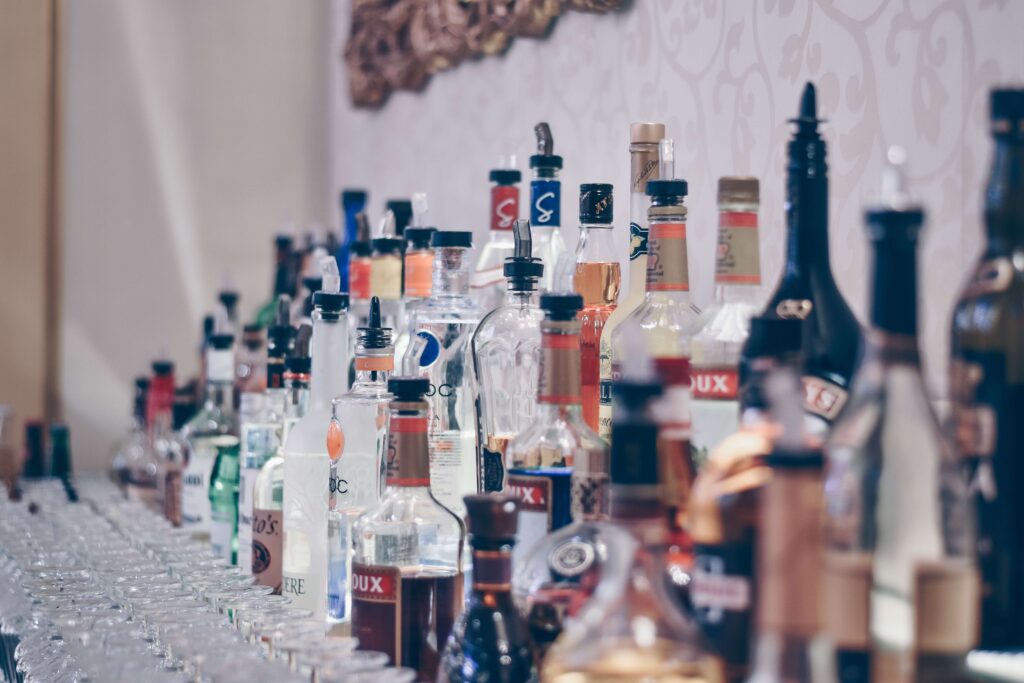Drinking habits among UK-based adults are incredibly varied and depend on a myriad of factors but a survey produced by Dry has uncovered some interesting consistencies across UK drinkers and non-drinkers alike.
Here is the data behind your drinking.
Over 87% of respondents reported first drinking alcohol before they were 18 years old – the legal drinking age in the UK. Perhaps less surprising, 90% of people said their drinking habits have changed since they first began drinking.
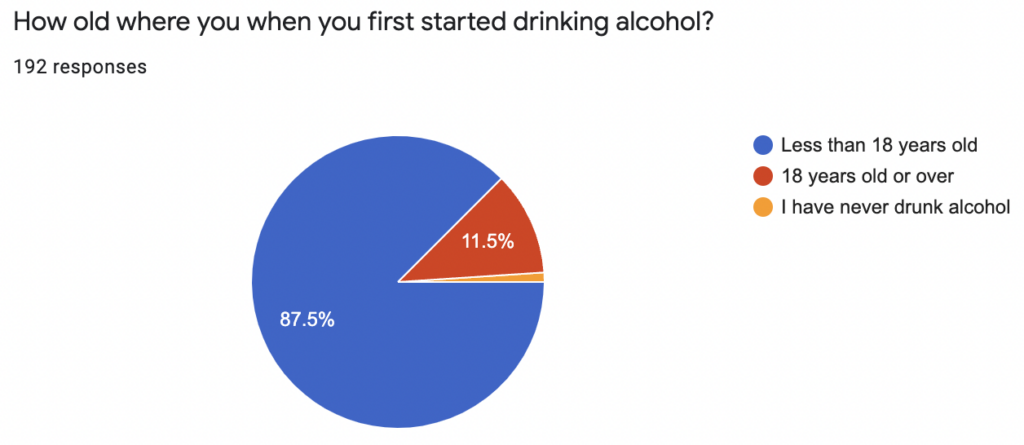
There was a fairly even split between the 31.1% of respondents who reported drinking less than when they first started drinking alcohol and the 28.9% who said they drink more compared to when they first started. Just over a quarter of respondents, 26.8%, reported that their alcohol intake fluctuates regularly, while only 10% of people say their drinking habits have remained consistent since they first began drinking.
Only six of almost 200 respondents, barely over 3%, reported becoming sober after drinking in the past.
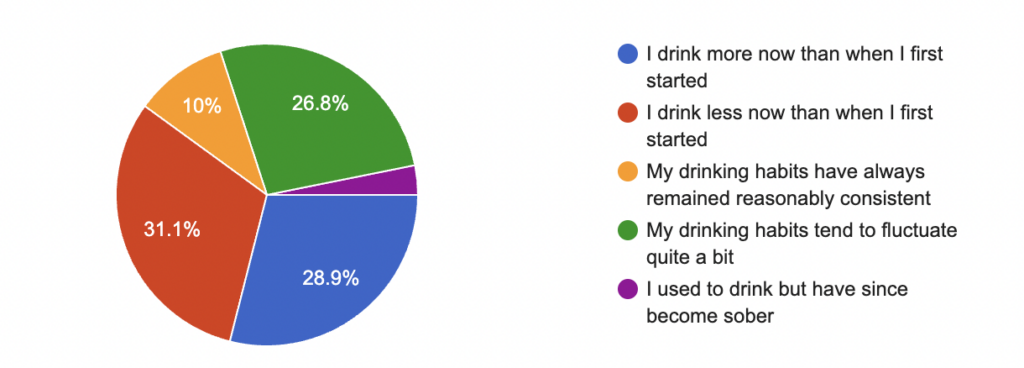
Despite very little follow through, over half of those surveyed say they have considered sobriety. The most popular factors for those considerations, in order, were physical and mental health, a negative experience while drinking, work or study commitments and financial issues, as can be seen in Figure 3 below.
Considering the ongoing climate crisis, it is a shock that only 6.9% of people said they considered the impact alcohol has on the environment when contemplating sobriety.
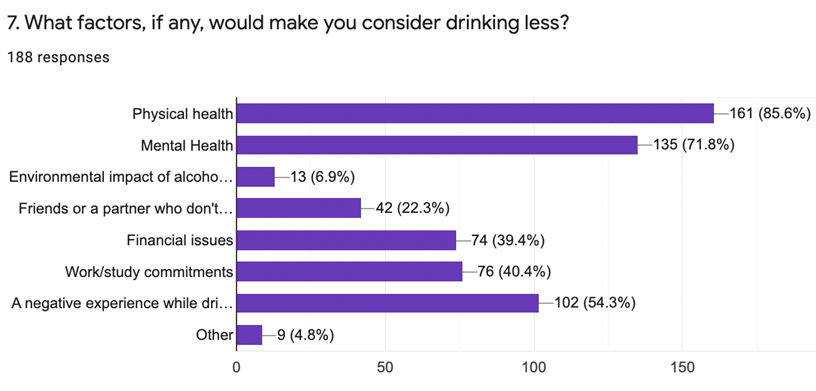
Although very few of the people surveyed have taken up sobriety, almost 70% of people reported attempting to reduce their drinking in the past.
Interestingly, 78.5% of respondents say they are content with their current level of alcohol consumption, indicating that their attempts to cut back on drinking may have been successful.
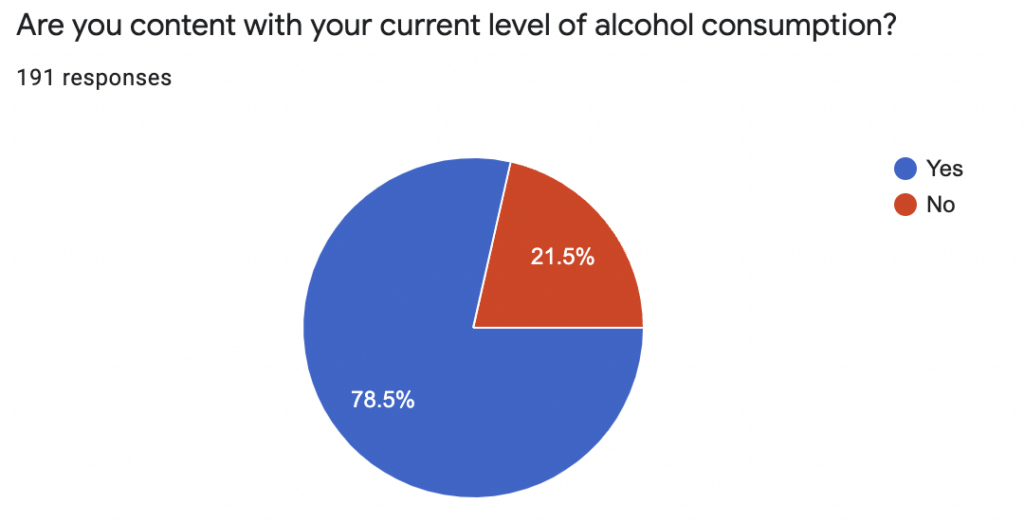
Over 80% of respondents reported either rarely or never drinking alcohol when alone and 52.1% of those surveyed only drink one or two days a week. As almost 80% of respondents to this survey were between 18 and 30 years old, these stats are perhaps a reflection of healthier habits among younger people.
Although becoming sober after initially drinking remains a rarity, it appears that people – particularly younger people – are consciously monitoring their drinking habits and making changes when deemed necessary.
Featured picture: Ibrahim Boran on Unsplash
You may also like
-
Survey finds Gen Z prefer marijuana to alcohol
-
Microneedle patches may soon be able to track how much alcohol you’ve had to drink
-
The non-alcoholic beer industry is expected to grow tenfold by 2025
-
New research suggests Minimum Unit Pricing on alcohol is hindering heavy drinkers
-
Alcohol tag scheme to expand after successful trials in England and Wales

